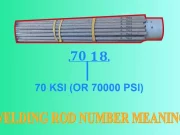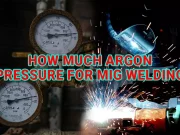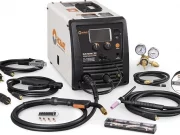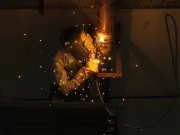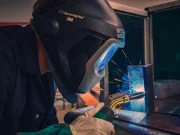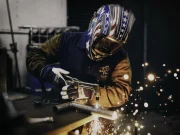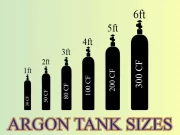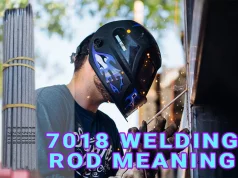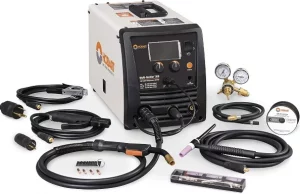Underwater welding is like two careers infuse into one. There’s welding, and there’s diving. You have to learn both to become an underwater welder.
Without sound diving skills, one might not be able to survive thousands of miles down the ocean. And without welding skills, getting the job done will be difficult.
An underwater welding job is also one of the scariest jobs on the planet. So, here’s a tough question. If you’re so eager to kick-start your career in this field, you should give this question a thought.
How much do underwater welders make?
Underwater welders earn fat salaries. Don’t forget it’s like two fields rolled into one. But that’s not the only factor that justifies the massive earning.
Underwater welding is one of the scariest jobs in the world. How? Professionals travel deep down the ocean to weld pipes and others. They put their lives on the line.
So, underwater welders have enough reasons why they should earn more money than other professions. And yes, they do earn more than a ton of professions.
Commercial divers and global statistics reports show that underwater welders earn 53,990 per annum and $25.96 hourly. Most of them earn around $25,000 to $80,000.
But here’s the thing. Underwater welders in the 10 percent earn $83,730, while those in the bottom 10 percent earn $30,700.
Experience matters a great deal and affects how much an underwater diver can make. The second biggest determinant is the location and the nature of the job.
There’s also a possibility of an underwater welder earning over $300,000 plus annually.
Alright, that’s the straightforward answer on how much underwater welders make. But keep in mind that numerous factors can determine how much one can earn as a diver welder. Let’s look at that and more.
Things That Determines How Much Underwater Divers Make
From the above answer, you can see that what underwater welders make vary from one professional to another.
Several factors can determine how much one can earn as an underwater welder. This section will discuss the various factors to provide all the information you need to decide if this career is a wise choice.
Here’s a quick look at factors that determines underwater welders’ earnings:
- Location
- Dive experience
- Environment
- Job’s depth
- Overtime
- Diving method
- Education level
- Employment competition
Alright, let’s throw more light on these factors for better understanding.
Location:
Location is a very big factor that influences underwater welders’ salary. Certain countries pay higher than some. So, count yourself lucky if you’re from those areas.
So, earnings vary from one international water, coastal area, or country to another. If you want to earn more, find out which country pays underwater divers higher and move there. Who knows, you could be hired to work full-time or per contract basis.
Dive experience:
On-the-job experience matters and influences underwater divers’ salaries. It determines the salaries of other professionals too.
You can’t compare what a rookie underwater welder would earn to the earning of another with years of experience. The job is tough and risky. And employers are seeking professionals that can deliver without any issue.
So, having three years’ experience in underwater welding can place you above beginners, even within the same company.
A Handy Tip: It is okay to dream big, but you shouldn’t be looking for bumper pay as a rookie. Improve your portfolio, and you may not even have to ask for higher pay. Just be patient and take on any underwater welding project that comes your way, even if the pay is small.
Environment:
every job or work environment presents its challenges, and underwater welding is not different. Challenges faced in an underwater welding environment also vary from one environment to another.
In some environments, water visibility may be zero degrees. You may also have to contend with freezing temperatures, high wave current, and other challenges.
To motivate an underwater welder to work in such an environment, they have to pay more money.
Job’s depth:
The depth of the welding job entails the duration the project would last, including its depth. If the project lasted for a long while, welders would need better pay to stay motivated.
Overtime:
Overtime enables employees to earn extra money. Some employers are even ready to reward employees handsomely for working overtime.
Overtime can also influence an underwater welder’s salary. If you’re able to work overtime, you’ll earn more money.
Overtime also suit underwater welding job owing to the extra money it puts in professionals’ pockets. This marine job is seasonal. So the extra money earned while working overtime can help to make up for the off-seasons.
So, seize every opportunity to work overtime. Who knows, your next welding project might be several months after. That’s how the job is.
Dive methods:
Dive methods or modes refer to the equipment and procedure a dive requires. Three dive modes exist, but the most common is the surface-supplied air method. The other two dive modes are mixed gas saturation and scuba diving.
Diver welders do charge based on the level of insulation between the diver and the environment. If there’s less insulation between the diver welder and the environment, earnings would higher.
Education level:
It happens in other professions; the higher your degree or professional certification, the bigger your pay.
If you obtained your certifications from credible training facilities, including an advanced degree, you might likely earn more money.
Your qualification and experience may also cause your employers to take you seriously. You would become an asset to the company.
Employment competition:
How saturated is the diving industry in your region? How many companies are or would likely require a marine welder?
The truth of the matter is employment competition influences earnings. If few marine welders and more job openings, employers would step their payment up to lure professionals in the field.
Underwater Welders: Types And Potential Earnings
It’s about time we take a broad look at the various types of marine welders out there. After reading, you should be able to determine your career path.
There are two types of underwater welders. One onshore welder while the other is offshore.
Now let’s discuss each type of underwater welders in detail.
Onshore welders:
Most people are more familiar with onshore welding. It’s also called “inland diving.
Professionals work in rivers and lakes close to bridges and dams. They do not perform maintenance on gas or oil structures.
So, what role do onshore welders perform?
This type of marine welders may not make much money as offshore divers. That’s because the job doesn’t involve much risk compared to offshore diving.
The dive often occurs in freshwater, helping to ensure that the diving gear doesn’t suffer corrosion.
Onshore welders provide support to civil engineers during construction projects. They check bridge structures to determine their integrity, inspect sewer pipes, cut underwater debris, inspect and fix dam walls.
But one thing is certain. Professionals in this field often work undercurrents and challenging environments.
What do onshore underwater welders make? This question is what every wannabe onshore underwater welder should be asking.
There are rookies or beginners and experienced professionals in every profession, which we will refer to as veterans.
The beginners earn far less than the experienced ones or veterans, as the case may be. Beginners make $25,000 to $40,000.
Veterans or experienced professionals have three or more on-the-job experience, making them an asset to companies. Professionals in this category earn $50,000 to $80,000.
Offshore welders:
You can call them “offshore divers.” Offshore diving is the toughest among the two types of underwater welding. Professionals in this field go deep down the ocean, sea, and gulf.
Pro Tip: Offshore divers receive support from a stationed boat or platform.
Offshore diving is also the riskiest, giving the unfavorable conditions underneath the sea or ocean. The type of underwater welding is also the entry point for newly certified divers going into commercial diving.
These professionals do extraction and maintenance jobs. That’s why you can find them mostly in oil and gas companies. They help in maintaining marine structures and even extract oil from the sea bed.
What makes this profession tougher is how long welders stay underneath the ocean. In some projects, the welder may have to remain underwater for days, sometimes months, until the task is completed.
Sometimes, these welders spend 4 to 6 weeks working on a project at sea. And they even do overtime of over 10 hours.
While underneath the ocean, welders have to deal with reduced visibility, changing weather, and increased pressure. All these are tough challenges for offshore welders, though they may appear simple on paper.
There’s a risk of welders suffering decompression sickness owing to the breathing gas’s increased pressure. And there’s the possibility of one experiencing an electric shock.
Underwater divers also need to be wary of wildlife living in the ocean, such as sharks and other deadly creatures.
Pro Tip: Divers can fart while scuba diving. However, this isn’t advisable. The reason is that an underwater fart can send a diver to the surface like a missile. And this alone can give rise to decompression sickness. Again, underwater fart explosion’s acoustic wave can disorient other fellow divers.
What do offshore welders make? Firstly, underwater welding, most especially offshore welding, isn’t for the faint-hearted. There’s also a need to be passionate about the job. Otherwise, you may lose interest in it.
Offshore welders receive fat salaries, which they merit. But it’s important to note that the rookies earn far less than the experienced professionals or veterans.
Let’s put a figure on how much money offshore welders make.
If you were a rookie, your salary would fall within $40,000 to $60,000. Those with experience earn far more.
If you have work experience probably, three to five years of on-the-job experience, you could earn from $50,000 to $80,000. You could even earn more than these amounts.
Pro Tip: Offshore welders have their season too. It starts from April to November and extends to the winter months, owing to how unpredictable the weather has become.
Conclusion
Underwater welding is one of the toughest professions in the world. It would help if you took several safety precautions to execute welding projects successfully.
You can have a successful career as an underwater welder by following the right path. Get the right qualifications and training in a world-class facility. Experience is also crucial for professionals in this field.




